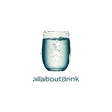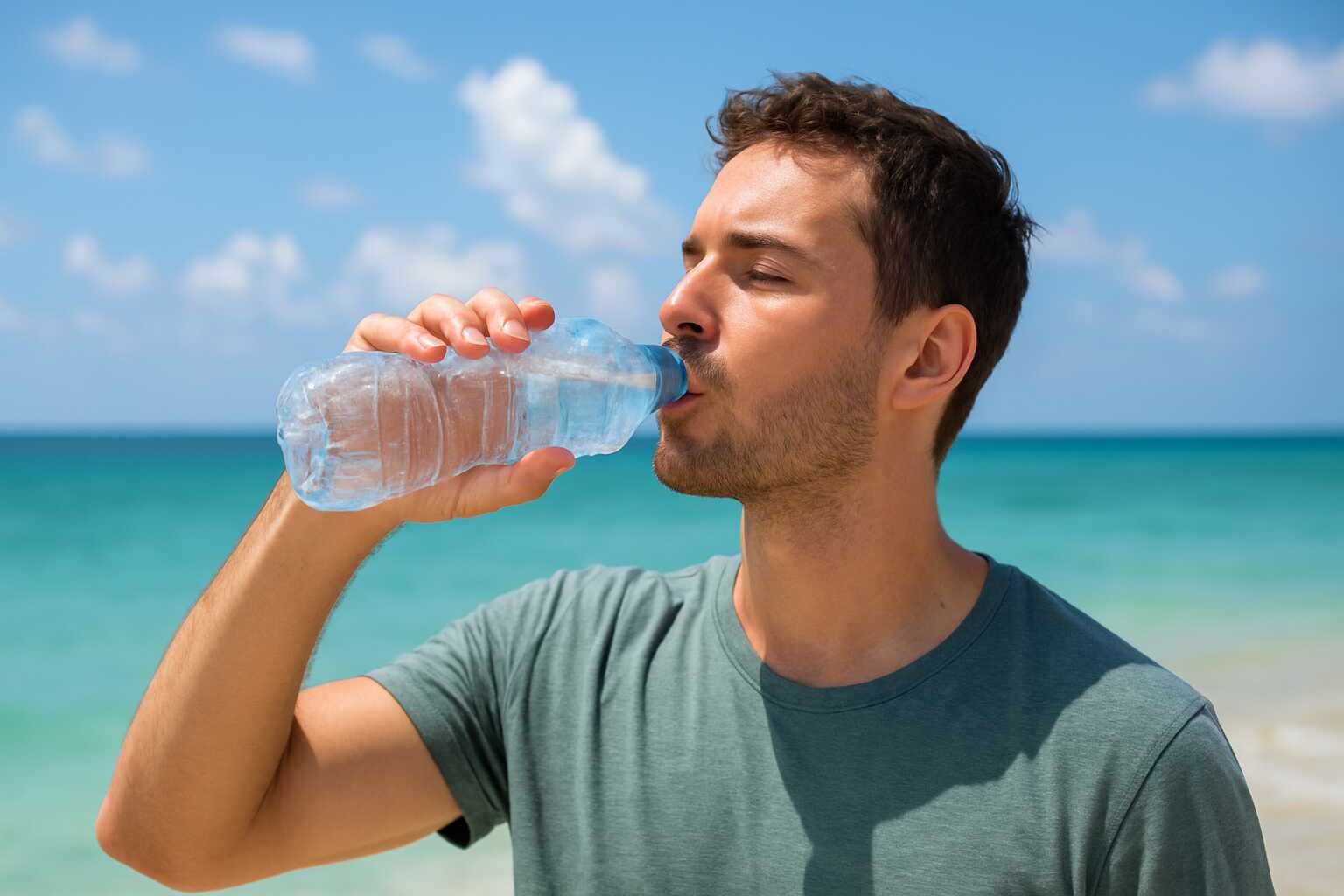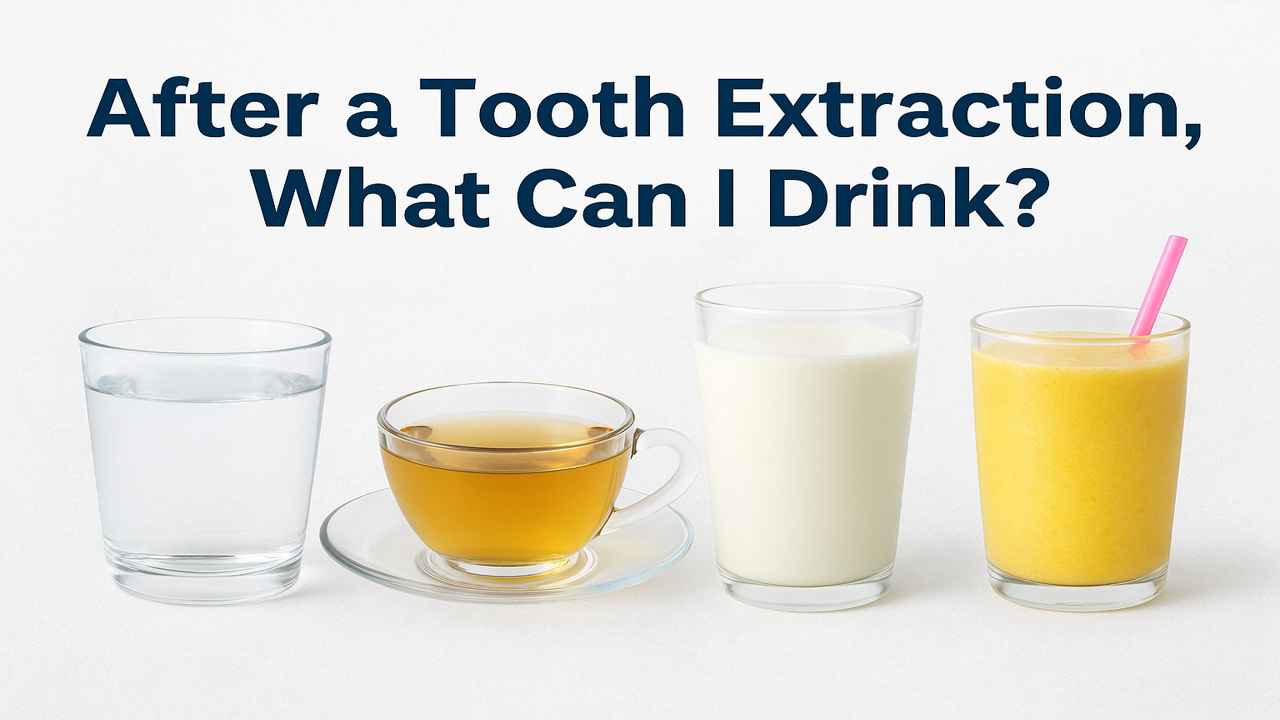Yes, drinking water can help allergies by keeping your mucus membranes moist, thinning nasal mucus, and supporting your immune system. While water alone won’t cure allergies, staying properly hydrated can reduce congestion, sneezing, and sinus pressure, making symptoms more manageable during allergy season.
Introduction
If you’ve ever wondered, “Can drinking water help allergies?” — you’re not alone. While most people focus on medications or air filters, few realize how big a role hydration plays in easing allergy symptoms. Water supports nearly every system in your body, including the immune and respiratory systems that react during an allergic response.
When you stay properly hydrated, your mucus membranes remain moist, helping trap and flush out allergens like pollen, dust, and pet dander. On the other hand, dehydration can thicken mucus, making congestion and sneezing worse.
Although drinking water won’t cure allergies, it can make your symptoms far more manageable by reducing dryness, thinning mucus, and supporting sinus health. In this guide, we’ll explore how hydration affects allergies, how much water you really need, and what experts recommend to stay comfortable during allergy season.
What Happens During an Allergic Reaction?
To understand how drinking water helps allergies, it’s important to know what actually happens during an allergic reaction. When your body encounters allergens—like pollen, dust mites, or pet dander—your immune system overreacts and releases a chemical called histamine.
This triggers common allergy symptoms such as sneezing, nasal congestion, watery eyes, and an itchy throat. During this process, your mucus membranes become inflamed as they work to trap and expel allergens.
If your body is dehydrated, mucus becomes thicker and stickier, making it harder to clear out allergens from your sinuses and airways. Proper hydration keeps mucus thin and your respiratory tract moist, allowing allergens to be flushed out more easily.
In short, dehydration can intensify allergy discomfort, while staying hydrated helps maintain smoother sinus drainage and healthier airway lubrication—key factors in managing seasonal or indoor allergies naturally.
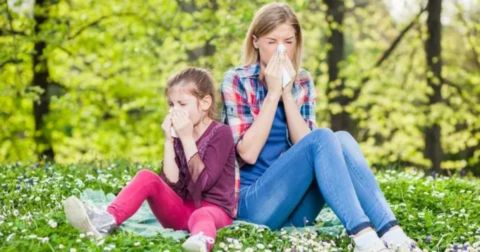
Can Drinking Water Help Allergies?
So, can drinking water help allergies? Absolutely — but it’s not a cure. Drinking enough water supports your body’s natural defense systems, making allergy symptoms less intense. When you’re well-hydrated, your mucus membranes stay moist and flexible, allowing your nose and sinuses to clear allergens like pollen or dust more efficiently.
Water also helps regulate histamine levels, which can ease sneezing, congestion, and sinus pressure. On the flip side, even mild dehydration can worsen symptoms by thickening mucus and irritating nasal passages. Simply put, staying hydrated won’t make allergies disappear, but it can make your body more resilient. Think of water as a gentle, natural aid that complements your usual allergy care routine.
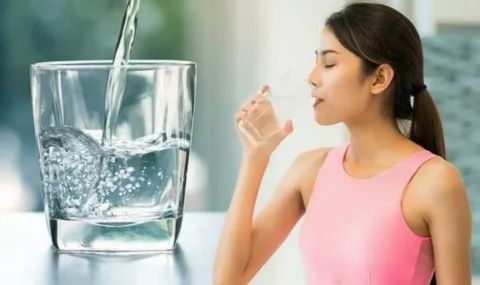
What Research and Experts Say
Health experts agree that hydration plays a key role in managing allergy symptoms. According to allergy specialists, drinking water helps allergies by keeping mucus thin and supporting nasal moisture, making it easier for your body to clear allergens.
Studies also suggest that dehydration may trigger higher histamine levels, intensifying sneezing and congestion. Experts from sources like Brita and Wyndly highlight that while water isn’t a cure, it can reduce discomfort and improve respiratory function.
Additionally, filtered water may be beneficial for people sensitive to chlorine or impurities found in tap water. The takeaway? Staying properly hydrated supports your immune system, helps control histamine response, and keeps your airways functioning smoothly during allergy season.
How Much Water Should You Drink During Allergy Season?
If you’re wondering how much water to drink when you have allergies, the general guideline is about eight glasses (two liters) a day. However, your ideal amount can vary depending on your activity level, body weight, and the climate you live in.
During allergy season—especially when pollen counts are high—your body may lose more fluids due to nasal drainage or sneezing, so increasing your intake slightly can help. Staying hydrated keeps your mucus membranes moist and your sinuses clear, allowing allergens to flush out more easily.
You can also boost hydration through foods like cucumber, melon, or citrus fruits, which have high water content. Remember, even mild dehydration can worsen allergy symptoms such as congestion, fatigue, and itchy eyes.

Practical Tips to Stay Hydrated for Allergy Relief
Staying hydrated during allergy season doesn’t have to be difficult—it’s about building simple habits. Keep a reusable water bottle nearby and sip throughout the day instead of waiting until you’re thirsty. Start your morning with a glass of water to rehydrate your body and loosen nasal passages. Choose herbal teas or warm water to help thin mucus and soothe irritation.
Limit caffeine and alcohol, as both can dehydrate you and worsen congestion. If you’re sensitive to tap water, consider filtered water to reduce potential irritants. Pair hydration with other allergy-relief steps like nasal rinsing, showering after outdoor exposure, and using an air purifier. These small changes help your body flush out allergens and maintain easier breathing.
When Drinking Water Isn’t Enough
While staying hydrated can ease allergy symptoms, it’s not a complete solution. If congestion, sneezing, or itchy eyes persist, it may be time to consider additional treatments. Antihistamines, nasal sprays, and immunotherapy are commonly recommended by allergists to manage more severe reactions.
Hydration complements these treatments by keeping mucus thin, supporting sinus drainage, and reducing irritation. It’s also important to minimize exposure to triggers such as pollen, dust mites, or pet dander. In cases of intense or persistent symptoms, consulting a healthcare professional ensures proper care. Think of drinking water as a supportive tool—it enhances your body’s natural defenses but works best when combined with other allergy management strategies.
FAQs About Drinking Water and Allergies
Q1: Can drinking more water reduce histamine levels?
Yes. Proper hydration helps your body regulate histamine release, which can reduce symptoms like sneezing, congestion, and itchy eyes. While water won’t eliminate histamine entirely, it supports the immune system in responding more effectively to allergens.
Q2: Does drinking water clear mucus and sinuses?
Absolutely. Staying hydrated keeps mucus thin, allowing your sinuses to drain allergens more efficiently. This can relieve nasal congestion and reduce pressure in the respiratory tract.
Q3: Is filtered water better for allergy sufferers?
For some people, yes. Filtered water can reduce exposure to chlorine, minerals, or other impurities in tap water that might irritate sensitive mucus membranes or trigger allergy-like reactions.
Q4: How quickly does hydration help allergy symptoms?
Effects are gradual. Regular water intake over several days helps maintain airway lubrication and supports immune function, easing allergy discomfort steadily rather than immediately.
Q5: Can dehydration make allergies worse?
Yes. Dehydration thickens mucus, slows sinus drainage, and may increase histamine release, intensifying allergy symptoms. Consistent hydration is a simple, natural way to reduce these effects and complement other allergy treatments.
